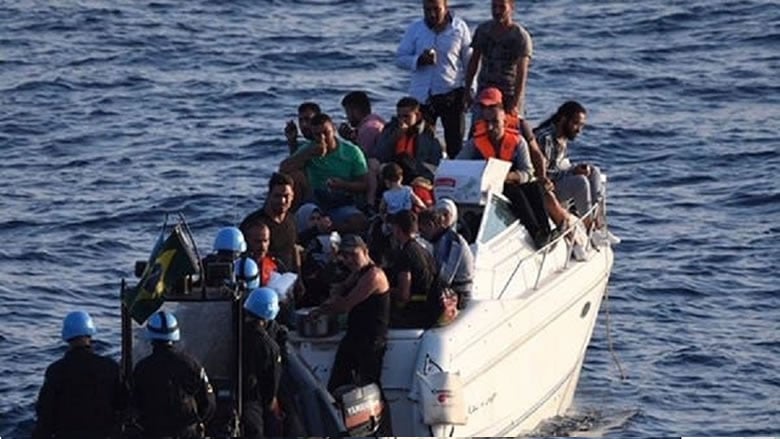Reports that Lebanese people are fleeing the country en masse reflect the country’s slide into a failed state. The government should be concerned.
Since the devastating August 4 Beirut explosion compounded Lebanon’s ongoing economic crisis, reports of people fleeing across the Mediterranean have increased. On September 20, more than 30 people were intercepted on a boat about 20 kilometers off the southern coast of Cyprus. The boat was one of many to leave the country over the last two months, with some Lebanese so desperate that they had sold all their property to pay to be smuggled to Cyprus or southern Europe.
Several of the vessels were not safely equipped for the voyage; in a televised interview after returning to Lebanon from a failed trip, one survivor said families had been trapped for seven consecutive days and nights. Other journeys ended tragically. One couple had to throw the bodies of their dead children who could not survive the trip into the deep sea. Others had to swim back to the coast seeking aid. There are no official records on the final number of deaths from this illegal emigration.
Despite these shocking reports, the official response has been underwhelming. The Lebanese President chaired a security meeting in response to these dramatic reports, and several decisions were taken to try to control this phenomenon: a pledge to increase coordination with Cypriot maritime authorities to secure the return of Lebanese citizens, to intensify investigations into the smuggling networks, and to coordinate with UNIFIL to make surveillance in the sea more effective. However, these decisions are unlikely to stem the flow of people, which stems from much deeper causes.
Yet perhaps a greater threat to the country is the less dramatic, but more widespread wave of emigration. Thousands of Lebanese citizens are searching for a way out, applying through embassies to flee the country. Canada has its open door policy for Lebanese immigrants, Australia and other European nations follow suit each according to its criteria and policies. These host nations will incorporate Lebanon’s rich human resources into their markets and economies. In turn, Lebanon will lose many of its best and brightest skilled workers, further compounding its economic woes. For example, the President of Physicians Order Sharaf Abou Sharaf has warned from the immigration of competent doctors which will negatively affect the health sector.
Lebanon’s brain drain is not new or unprecedented, however. The country witnessed a similar wave of immigration back in the final stage of the Lebanese Civil War in 1989-1990. General Michel Aoun (now the incumbent President) launched two wars, the first supported by Iraq’s Saddam Hussein against Syria in the aim of ousting the Syrian army from Lebanon, and the second against his fellow Christian party the Lebanese Forces. The first ended up with a total failure as the Syrian Army only left the country in April 2006 after the assassination of former prime minister Rafic Hariri and under enormous international pressure led by the US and France. The second cleaved divisions among the Christian community, which continues to be split along party political lines. In the end, both resulted in a massive wave of immigration from the country.
In 2020, it is even worse. Though there is no armed conflict in the country, the economy continues its free fall. Hyperinflation looms as the national currency has lost most of its purchasing power. Employment is on the rise and poverty rates have reached unprecedented levels. The ailing economy has suffered further due to partial lockdown, with COVID-19 cases rising every day. Hospitals risk being overwhelmed.
The country is devastated at all levels with no hope in the horizon. Measures taken by the Central Bank are not sufficient to stop the rise of the dollar rate vis-à-vis the Lebanese lira. Unless a trustworthy cabinet is created soon to launch the long awaited reforms that would eventually lead to pumping money again to the economy; no measures will be capable to divert the course. Downfall is inevitable.
As the opportunity of the French political initiative has been squandered, expectations are again low. The Lebanese people are paying the price once more.





